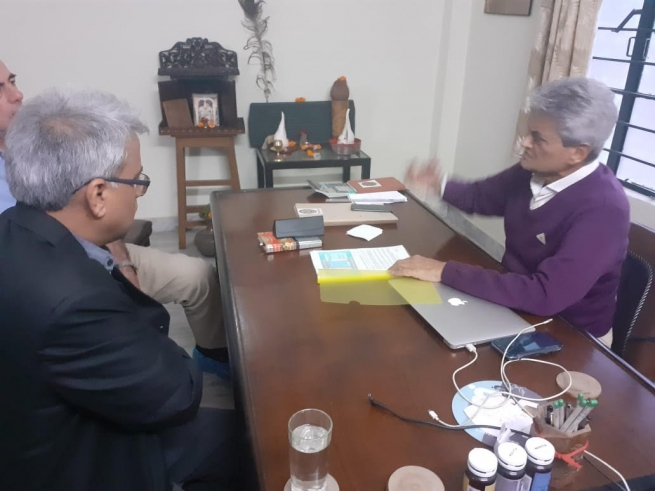This agreement shall offer high-level vocational training to the region's adolescents and young people, who will thus be more aware of their qualities and more resources and opportunities to reject the deceptive lure of traffickers.
"'Education and skill training is the only solution, to prevent them [girls] from falling easy prey to stalking flesh traders who lure the unsuspecting girls with false promises of quick bucks and better future outside,'' says Salesian College Principal Dr. (Fr.) George Thadathil.
The Salesian College, founded in 1938 and located in the village of Gorabari, 2 km from the town of Sonada and at an altitude of almost 2,000 meters above sea level, has more than 95% of the student population from the hills of Darjeeling, a region known throughout the world for the quality of its tea leaves.
In the District of Darjeeling, there are currently 83 tea farms covering an area of about 19,000 hectares; they provide stable employment to over 52,000 people.
In addition to the typical problem of migration from rural regions, and to the dangers of trafficking in girls, another element that affects educational opportunities for young people is the low wages of the sector's workers.
The NGOs working to prevent trafficking estimate that ''over 400 girls are trafficked every year from tea gardens, mostly those that have stopped functioning.'' Traffickers, in fact, first look for their victims where hunger and poverty are higher, and not where businesses are stable and there are more opportunities for higher education and health facilities.
For his part, Mr. Banerjee, belonging to a dynasty of tea growers, the first to start tea cultivation in Darjeeling, besides being committed to training young women, is among the pioneers of sustainable agriculture in the region.
"Rimpocha is not just tea," explains Banerjee, "but a philosophy of life which stands on five pillars of sustainability: healthy soil, economically-empowered women, biodynamic compost and fuel from the holy cow, fair price and trade for marginalized growers and technological assistance for direct marketing of their produce."
Source: Don Bosco India


